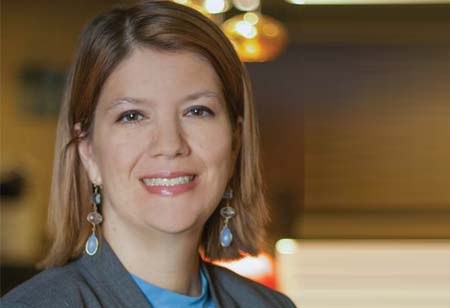Thank you for Subscribing to Healthcare Business Review Weekly Brief

Nurse-Led Interventions to Improve Patient Care, Quality, and Outcomes
Healthcare Business Review
In nursing, there should be a passion and encouragement to increase nurse professionalism and engagement in patient care at all levels. The bedside nurse is an integral part of the healthcare team and needs to become more engaged and confident in participating in interventions to improve patient care, quality, and outcomes. There are a few basics the healthcare community needs to ensure are available for bedside nurses. This includes tools and resources to do their job, education and skills development, confidence in decision-making, and engagement or buy-in.
Bedside clinicians, including registered nurses, are essential to the multidisciplinary team to evaluate and treat hospitalized patients. Clinicians need the knowledge, skills, tools, and resources to assist in the early identification of patient deterioration. The nurse provides continuous care to the patient at the bedside for 8 to 12 hours and is positioned to recognize changes in a patient’s condition. The nurse's ability to recognize changes and act as a patient advocate is imperative to ensure communication and care between the patient and provider. The improved skills, knowledge, awareness, and guidance of nursing practice and protocols assist the nurse in obtaining the care needed for the patient. Barriers to escalating care can exist if the nurse does not have the knowledge, skills, and confidence to report concerns to providers when identified during assessment. Allowing the nurse autonomy to assess, determine, and escalate patient care needs through an appropriate avenue is in the best interest of the patient.
Tools and resources for nurses to complete assessments include items such as care protocols, warning systems, and escalation processes. There are journals referencing a need to aggregate findings into a standard protocol or approach to identify the patient’s need for escalation of care and treatment to the next-level provider. Researchers have provided details and background information on standards to recognize a patient's deterioration. A multidisciplinary approach and the use of resources at all care levels may benefit a patient's outcomes. Early warning signs and systems have been used in various circumstances to improve identification and care for patients in the hospital setting. These protocols can utilize the bedside nurse's skills, knowledge, and expertise to trend patient information and recognize the need to escalate care. Using standardized care and evaluation can improve patient outcomes and prevent adverse events including death.
Another area of focus to utilize nurses at their full potential is education and skill development. Nurses graduate school with the basics needed to care for patients in general. Once a nurse enters a specialty area, there needs to be the opportunity for initial and frequent skill development or even to retain low[1]volume competencies. Nurse leaders and educators often believe that this is difficult without a simulation lab. Nurses are the best problem solvers at finding ways around obstacles. The chance for education lies with case studies, huddles for just-in-time training, and low-fidelity simulation. The additional exposure to skills can help with the next need mentioned, confidence. The nurses in the acute care setting are younger and with very few 20-year veteran nurses at the bedside for guidance and mentoring. As nursing professionals, we need to impart the knowledge and skills needed to maintain the confidence needed to escalate care concerns in the best interests of our patients.
Finally, healthcare professionals need to always think about including bedside nurses in policies, protocols, and processes that will impact workflow, care, and commitment. Nurses, and other frontline staff, have insight to know what works and what is practical in their setting. Nurses are also able to share gaps in practice or items that may be needed to facilitate practice. All healthcare professionals need to have the ability to speak up when a process is broken or needs improvement.
The recommendation to lead the future of nursing practice and innovation is to evaluate standardized models, processes, and procedures for various patient populations. Nursing leaders, researchers, and educators should identify needs, gaps, and barriers to determine how to move nursing practice to the next level. Nurses should be engaged to improve standardized care and create a multidisciplinary approach to the evaluation of hospitalized patients. This approach should include registered nurses at the bedside in the education and development of a protocol to improve engagement and confidence and prevent adverse outcomes. There is a need for future information on the utility of nursing practice. Future implications for research include a standard protocol for various patient populations and the involvement of the bedside nurse to improve patient outcomes.









